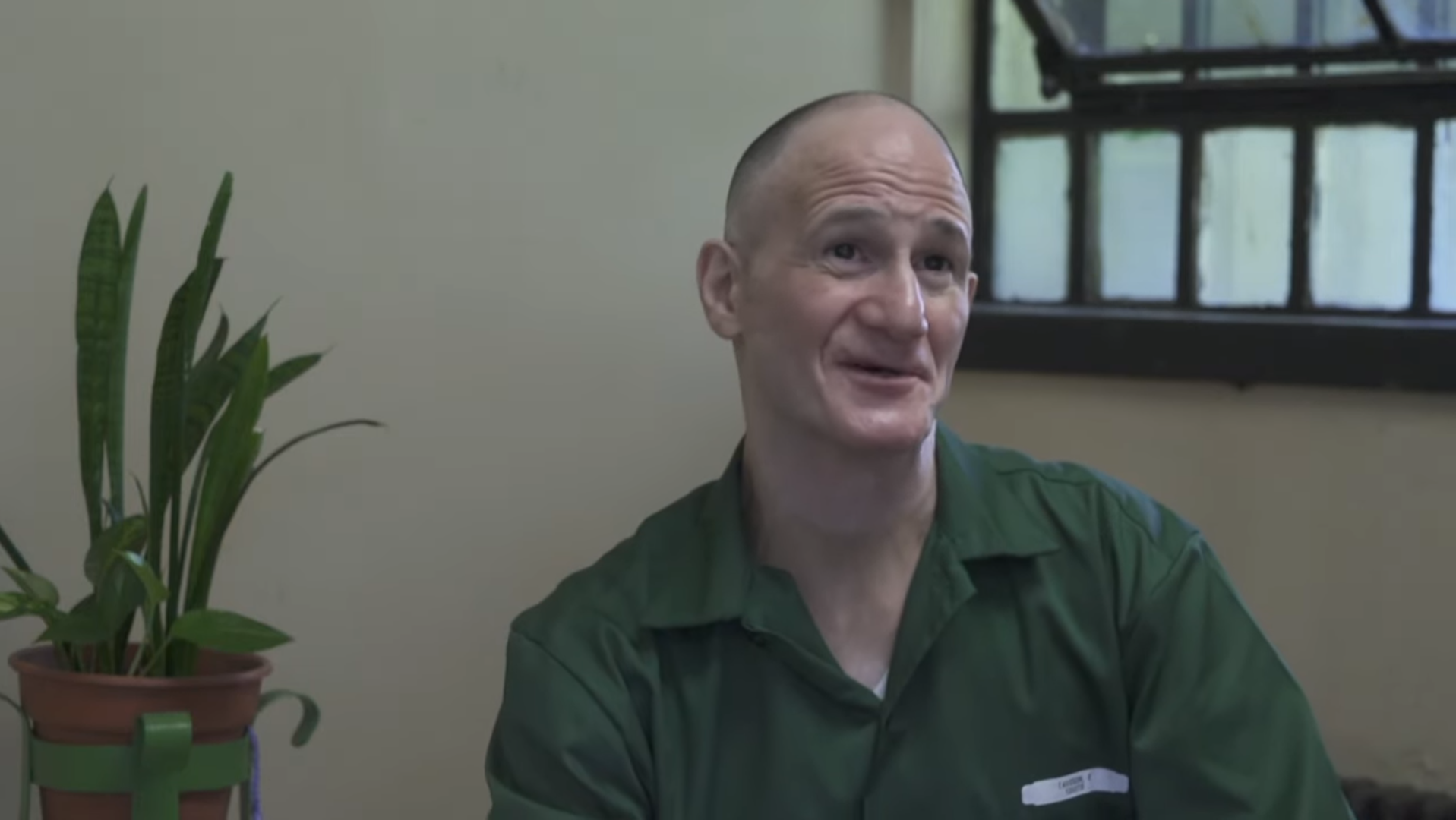Watch the Video:
Video Transcript
Eric: My name is Eric. I’m 53 years old next week. I’ve been incarcerated now for 13 years out of the 16-to-life sentence. And right now I’m in Sing Sing Correctional Facility, housed in the Honor Block.
Diane: Tell me about the person that you were prior to coming to prison and who the person you are now is.
Eric: Very pissed off, angry. Grew up in the Upper East Side of Manhattan. Got involved with doing drugs as a crutch to my depression. I originally worked in the garment industry, a sales representative, and did that for many years. I got family members in that field. I also worked for an energy service company and did very well at one point, but I wasn’t satisfied, I guess. I committed burglaries, in the Upper East Side of Manhattan- a string of them which resulted in my conviction. Hopefully now I’ve learned.
All my family members pretty much dwindled during the course of my incarceration. My mother had passed. She’s a 9/11 survivor. She worked at Meryl Lynch diagonally across the street from the towers. She inhaled the polarized glass fumes that subsequently caused fungus in her lungs. She passed from COPD due to complications of 9/11 on February 2nd 2017.
I do have a brother. He’s out of state in the Navy. He’s touch and go, though. So I’ve pretty much been all my own during most of this bid.
But despite all that, I’ve had to kick off the dust and move forward. College was definitely a way to escape a lot of the ills associated with prison. I don’t hang out too much in the yard. I only socialize with people that are like minds and that want to go in the direction of making the best of this experience. Try not to go out the same way you came in. I’m working on my Bachelor’s right now on June 1st, and so that was a big accomplishment for me.
Most of the time now I’m in my cell studying in the wee hours, burning the midnight oil, typing up my papers. They do have a computer lab here where you can do your papers, but I prefer being in the comfort of my own cell. It’s quiet, and where I’m at in Honor Block there’s not a lot of screams or music going on. Sometimes you don’t hear or see an officer for hours on end which is great, so I’m in my own head space and studying. I got books all over my bed. The size of the cell is about the size of a bathroom. The good thing though, because it’s the Honor Block, they need the cells open from 6:30am to 10:30 at night, so it has a lot of amenities that are not afforded to the general population. You can use the phone all day, hold a tablet. There’s an ice machine, you can cook. There’s a cat there, Tiger. So we feel a little bit more human. It just makes the bid go so much better. A lot of individuals there are those like myself who are in college or college graduates, masters included. There’s a music program here, Carnegie Hall. Who would think Carnegie Hall would be in a place like prison, right? Common was here not so long ago the other day.
Diane: So tell me about Honor Block. Is the name indicative of how we get there?
Eric: Yes. So you have to be first in the facility for at least a year without disciplinary for the right to be put on the list. And you still have to maintain your disciplinary. Because there’s only 88 cells there and the list is long, so it takes up to four years without ticket, which is very difficult.
Diane: Who are you today that is different than the person that walked in?
Eric: Today, I think I’m more compassionate and more responsible. That’s what college has done. First of all, it’s forced responsibility. And it helped me critically think. When in prison, it’s difficult anyway; you don’t want to divulge too much information. You have to be very careful who.
Diane: How is the reality of prison versus what you thought you knew?
Eric: It could be violent. It all depends on where you want to go. Like some people opt to be part of a gang. For whatever reason, people like that camaraderie. I don’t like that kind of attention. I just think that it’s something that welcomes violence. I’m not a violent person. Like burglary, by statute, is violent cause they say that it could escalate to violence in the event that somebody comes home. I got the 16-to-life sentence. I’ve seen some of them, notorious crimes that supersede mine, get nowhere near that time.
Diane: So earlier you talked about your Mom. Is there anything you want to share about her?
Eric: Before she passed I remember being at her deathbed. I was able to get that visit. She had said, “I’m very proud of you.” She knew that I was pursuing my education. She said, “You know, I’m sorry that I failed you.”
I said, “No, you did not. It was all on me.” She did nothing for me to move in that direction. So I said, “Mom, I’m gonna be okay.” And she passed like that.
When I took my education, from what I understand, the parole board looks at it like- the recidivism rate at that time was less than 1%. So that was my thing, to assure them that I’m not coming back to prison. And I did it for that purpose. I had an ulterior motive: I gotta take this college thing, and it wasn’t necessary that I had a passion to learn about things, right? But as I started in the program, my thinking started to change and I started to have to critically think. I had to be responsible. I had to do my papers. And you know, I like to get A’s; I’m an A student. I have a couple of Bs. So I work hard and I started having this pride about when I submit my papers and I’m eager to know. I say, “I know I perfected, I got this, I aced this.” So now I understand why the recidivism rate is lower. You start to develop your character, you start to change your thinking, right? And you’re escaping, like I said earlier, the ills of prison and you’re removing yourself from that environment. And you become mature.
Cool. Thank you so much guys.








What a wonderful video! I hope that Eric makes it when he gets out! He is certainly moving in that direction. It was a pleasure listening to him! Obviously he has worked hard to get where he is today! I wish him all the best of luck!